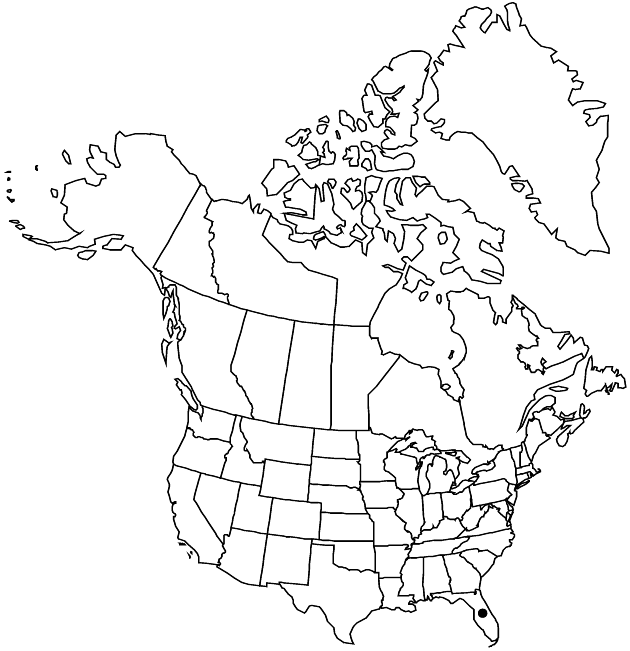Difference between revisions of "Carphephorus odoratissimus var. subtropicanus"
Novon 11: 366. 2001.
Endemic
Basionym: Carphephorus subtropicanus DeLaney N. Bissett & Weidenhamer, Bot. Explor. 1: 2, figs 1, 3. 1999
Treatment appears in FNA Volume 21. Treatment on page 537.
imported>Volume Importer |
imported>Volume Importer |
||
| Line 56: | Line 56: | ||
|publication year=2001 | |publication year=2001 | ||
|special status=Endemic | |special status=Endemic | ||
| − | |source xml=https:// | + | |source xml=https://bitbucket.org/aafc-mbb/fna-data-curation/src/2e0870ddd59836b60bcf96646a41e87ea5a5943a/coarse_grained_fna_xml/V19-20-21/V21_1363.xml |
|tribe=Asteraceae tribe Eupatorieae | |tribe=Asteraceae tribe Eupatorieae | ||
|genus=Carphephorus | |genus=Carphephorus | ||
Latest revision as of 20:09, 5 November 2020
Plants with slight or no odor of coumarin or vanilla. Basal leaves less than 15 × 4 cm; midstem leaves narrowly elliptic, margins entire, apices appressed to stems. Primary head-bearing branches diverging from main axes at 30–45°. Florets mostly 10–14.
Phenology: Flowering (Sep–)Oct–Nov.
Habitat: Burned pine savanna-flatwoods, dry prairies
Elevation: 0–50 m
Discussion
Variety subtropicanus, which occurs in the southern half of Florida, is mostly allopatric with var. odoratissimus. Intergrades occur where their ranges meet (S. L. Orzell and E. L. Bridges 2002).
Selected References
None.
Lower Taxa
None.
